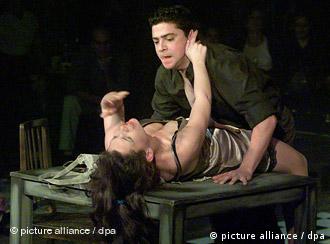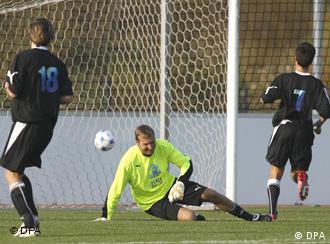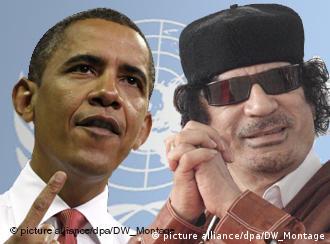Dolphin slaughters in Taiji,
Wakayama Prefecture, have drawn strong protests from animal rights groups, their supporters and foreign media over what they call the brutality of the traditional hunt.
In addition, animal activists are warning of the potentially dangerously high levels of methyl mercury in dolphin meat. Methyl mercury was behind deadly
Minamata disease in
Japan in the 1950s and '60s.

Meanwhile, fishermen and the government question why slaughtering dolphins is considered brutal when cows, chickens, fish and other edible animals meet the same fate.
How are dolphins hunted, killed and eaten in Japan? Is eating them really dangerous?
Here are some basic questions and answers:
How many dolphins are caught in Japan and where are they hunted?
According to the Fisheries Research Agency, 13,067 dolphins were caught in 2007. Of them, 10,218, or 78 percent, were caught in Iwate Prefecture, 1,623 in Wakayama, 885 in Hokkaido, 254 in Miyagi and 87 in Okinawa.
The amount has been decreasing in recent years. It was 13,751 in 2006, down from 16,012 in 2005. Iwate has always accounted for about 80 percent of the catch.
The Fisheries Agency sets a quota for each prefecture. Dolphins do not fall under the purview of the
International Whaling Commission, said Hideaki Okada of the Fisheries Agency.
How are dolphins caught?
In Taiji, fishermen herd them into a small cove by banging iron pipes and then harpoon them. They also take some dolphins alive for sale to aquariums.
Elsewhere in Japan, fishermen hunt them in coastal waters.
On Sept. 9, fishermen in Taiji caught about 100 bottlenose dolphins and 50 pilot whales in their first seasonal hunt. They planned to sell 40 to 50 dolphins to aquariums and released the rest amid international criticism. The whales were slaughtered. What the fishermen will do in their next hunt remains to be seen.
Facing international criticism, will the Fisheries Agency change its stance on catching dolphins?
Probably not. The agency allows fishermen to catch dolphins to keep the animals' numbers from increasing or decreasing too rapidly, according to Okada.
He also rejected the argument that dolphin slaughters in Taiji are brutal.
"We think killing dolphins is no different from killing cows and pigs. We will reconsider how to kill dolphins if killing methods are a problem," Okada said.
What happens to captured dolphins?
About 99 percent are slaughtered for food. The rest are sold to aquariums in and outside Japan, Akio Usagawa, chairman of the Taiji International Friendship Association, said.
Only in Taiji are dolphins caught alive, according to Yasushi Shimamura of the Resource Management Division of the Wakayama Prefectural Government.
Where is dolphin meat eaten in Japan?
Most Japanese have never eaten dolphin meat, although elderly people are likely to have eaten whale. Many would be surprised to learn of the custom of eating dolphin meat in some rural areas of Japan.
No official data showing places of consumption is available, but Dolphin Fisheries Cooperative official Shiro Sato in Iwate said most of the dolphins caught there are transported outside the prefecture.
A Taiji Fisheries Cooperative official, who declined to be named, said the meat is consumed both inside and outside Wakayama Prefecture.
Dolphins are also eaten in eastern Shizuoka Prefecture, although no local fishermen reportedly catch dolphins these days.
In Ito, eastern Shizuoka, fishermen caught dolphins for hundreds of years, which is why people there are accustomed to eating the meat even though the animals have not been caught there since 2004, according to dolphin meat dealers in eastern Shizuoka.
Yoshihide Suzuki of Samasa Suisan, a fish wholesaler based in Numazu, eastern Shizuoka, said his company buys dolphin meat from Iwate. The company sells seafood to fish retailers and supermarkets.
How is dolphin meat cooked and how much does it cost?
Masahiko Yamazaki of Nagahama Suisan, a fish retailer in Ito, said dolphin meat is typically stewed with miso, carrots and devil's tongue ("konnyaku"). Grilling dolphin steaks in soy sauce is also popular, he said.
The retail price of dolphin meat is between ¥100 and ¥200 per 100 grams, he said.
How much mercury does dolphin meat contain and how dangerous is it?
The amount of accumulated methyl mercury differs depending on the kind of dolphin, but the Health, Labor and Welfare Ministry says that the levels in general don't pose any immediate danger to ordinary consumers, although pregnant women or women who may get pregnant soon are advised not to eat it often.
According to research conducted by the ministry, which checked 9,700 fish of 400 different types in the early 2000s with assistance from the Fisheries Agency and local governments, "ishi-iruka," or harbor porpoise, the type of dolphin caught in Iwate, Hokkaido and Miyagi prefectures, and which accounts for 96 percent of dolphins caught in Japan, have lower levels of methyl mercury than several other fish commonly eaten by Japanese people, such as "kuro-maguro," or Pacific bluefin tuna, and "kinmedai," or splendid alfonsino.
According to a 2005 ministry study, the methyl mercury level of harbor porpoises was 0.37 parts per million.
Meanwhile, the mercury level of "bando-iruka," or bottlenose dolphins, was much higher at 6.622 ppm.
The ministry recommends that pregnant women or those likely to become pregnant soon should not eat bottlenose dolphin meat more than once every two months, in amounts of 60 to 80 grams.
Then why do some experts and animal activists argue eating dolphin meat is dangerous and that it shouldn't be sold?
They point out that accumulated methyl mercury in dolphin meat exceeds "the provisional regulatory level" of 0.3 ppm set by the health ministry for fish and shellfish in general, based on a 1973 notice to local governments and municipalities.
According to the 2005 study, the level of methyl mercury in bottlenose dolphin meat was particularly high at 22 times the advised level. In Wakayama Prefecture, 320 bottlenose dolphins were slaughtered in 2007, according to the Fisheries Research Agency.
However, health ministry official Haruki Deguchi said the 1973 notice does not apply to dolphin meat because individuals rarely eat it often and the ministry has already publicized information concerning how much and how frequently it should be eaten.
With the notice, the health ministry has requested local governments to take measures urging retailers, wholesalers and fishermen not to sell sea animals containing methyl mercury higher than 0.3 ppm because consumption over a long period of time could cause health problems such as Minamata disease.
I can't trust the Japanese government. Is there any advice from a third party?
The Japan Consumers' Cooperative Union, the nation's largest cooperative organization, advises consumers not to eat the meat of dolphins, whales, tuna, shark and deep-sea fish more than twice a week, in amounts of 100 to 200 grams each time, because they contain relatively high levels of mercury, according to the co-op's Web site.
It specifically points out that dolphin meat "contains particularly high levels of methyl mercury" and advises consumers "to enjoy eating them only on very rare occasions."
Why are pregnant women in particular advised not to eat dolphin meat?
According to a 2005 warning by the health ministry, fetuses cannot easily eliminate methyl mercury, whereas adults and children can.
Women who breast-feed should not be concerned because their milk contains very tiny amounts of mercury, according to the release.
Will the health ministry change its regulations on dolphin meat consumption because of criticism by international animal protection groups?
Probably not. The ministry says no regulation changes are urgently required.
"The criticism does not affect the health risk of residents in Japan. We do not have to change our stance just because animal protection groups say something," Kenji Urakami of the ministry's Standards and Evaluation Division said.



















